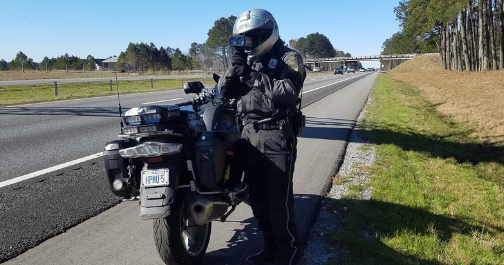NC State Highway Patrol Partners In ‘Drive To Save Lives’ Campaign
-Press Release, NCSHP
The North Carolina State Highway Patrol will once again join 14 other states in an effort to reduce collisions along the I-95 corridor. Through support from the International Association of Chiefs of Police (IACP) and states along the eastern portion of the U.S., the Drive to Save Lives Campaign is intended to increase the visibility of law enforcement officers over a period of three days.
Interstate 95 (I-95) is approximately 1,920 miles in length and is currently considered one of the deadliest highways in the country. On average it supports 72,000 vehicles per day of daily traffic (with peak daily traffic over 300,000 vehicles) and it has over 10,000 vehicles for its average daily truck traffic (with peak daily truck traffic being over 31,000), per the I-95 Corridor Coalition.
This year’s initiative will coincide with National Distracted Driving Awareness Month. According to the attorneys at Bayoucitylaw.com, “nine percent of 2016’s fatal crashes involved distraction.” In 2016 alone distracted driving led to 3,450 deaths and in 2015, 391,000 people were injured in motor vehicle crashes involving distracted driving. Teens remain the largest age group involved in distracted driving-related fatal crashes. With distracted driving being proven to be a grossly underreported violation, these numbers are only the minimum. (NHTSA)
The campaign will begin on Friday, April 5 and conclude Sunday, April 7, 2019. Troopers from every state along I-95 will be out in full force, in hopes of reducing the number of fatal collisions to zero.

The North Carolina State Highway Patrol will once again join 14 other states in an effort to reduce collisions along the I-95 corridor. Through support from the International Association of Chiefs of Police (IACP) and states along the eastern portion of the U.S., the Drive to Save Lives Campaign is intended to increase the visibility of law enforcement officers over a period of three days. (Photo courtesy NCSHP)

